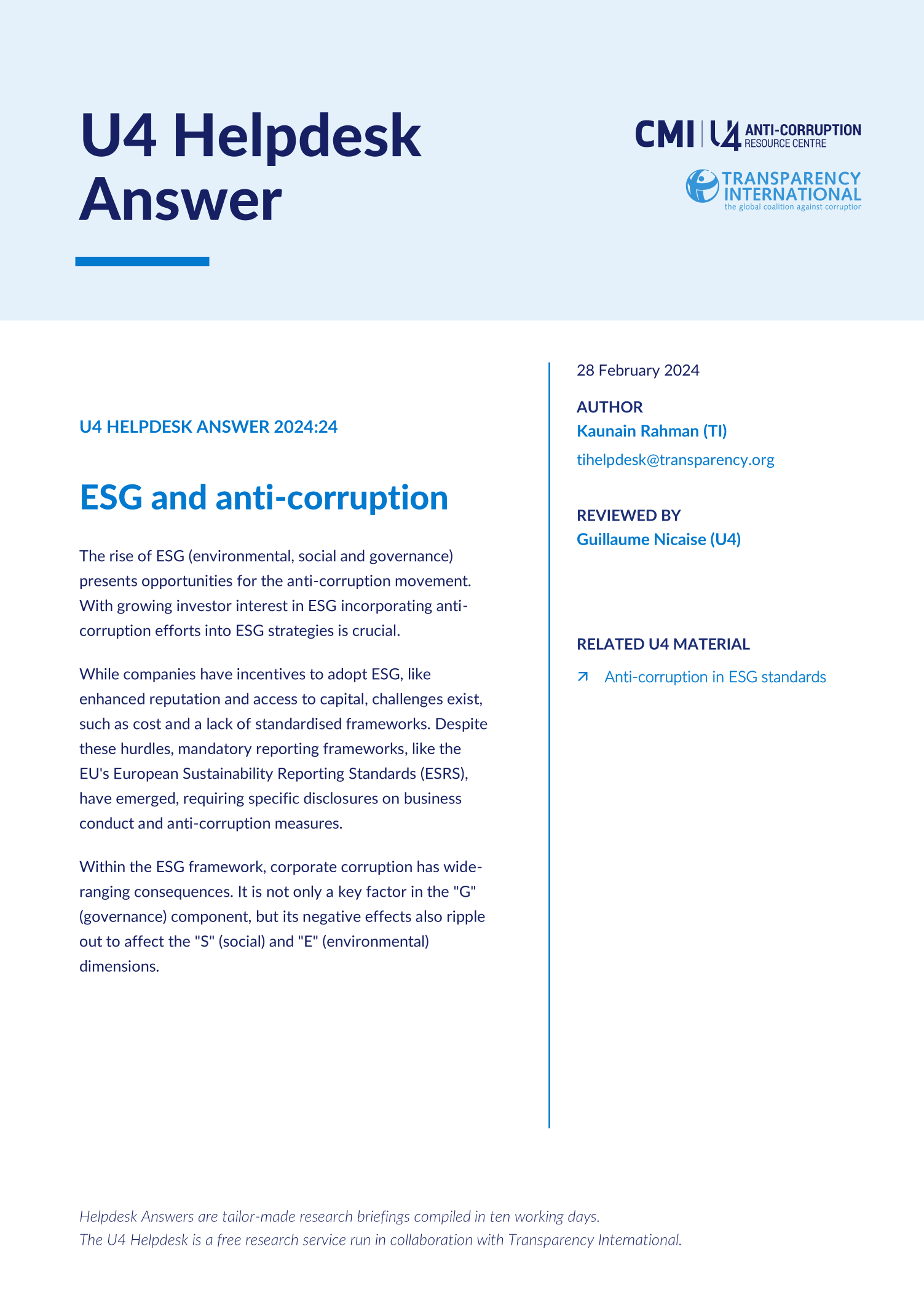Main points
- Incentives for using ESG practices in business include better financial performance, capital market advantage, serving investor interests, access to public contracts, improved reputation and trust, and enhanced resource efficiency.
- Disincentives for businesses implementing ESG practices include short-term costs, lack of standardisation in ESG data and ratings, the risk of greenwashing and associated sanctions, and the potential for profitability through sustainability reporting deficiencies.
- While there is evidence suggesting that ESG reporting can have a positive impact on anti-corruption behaviour within companies, there are challenges and limitations that need to be addressed for more effective integration of anti-corruption measures within the ESG ecosystem.
- ESG disclosure landscapes include both voluntary and mandatory practices. This paper highlights some features of mandatory frameworks in the EU (recent ESRS) and the US.
- The mandatory European Sustainability Reporting Standards (ESRS), especially ESRS G1 on Business Conduct includes anti-corruption themes such as prevention and detection of corruption and bribery, lobbying, corporate culture etc.
